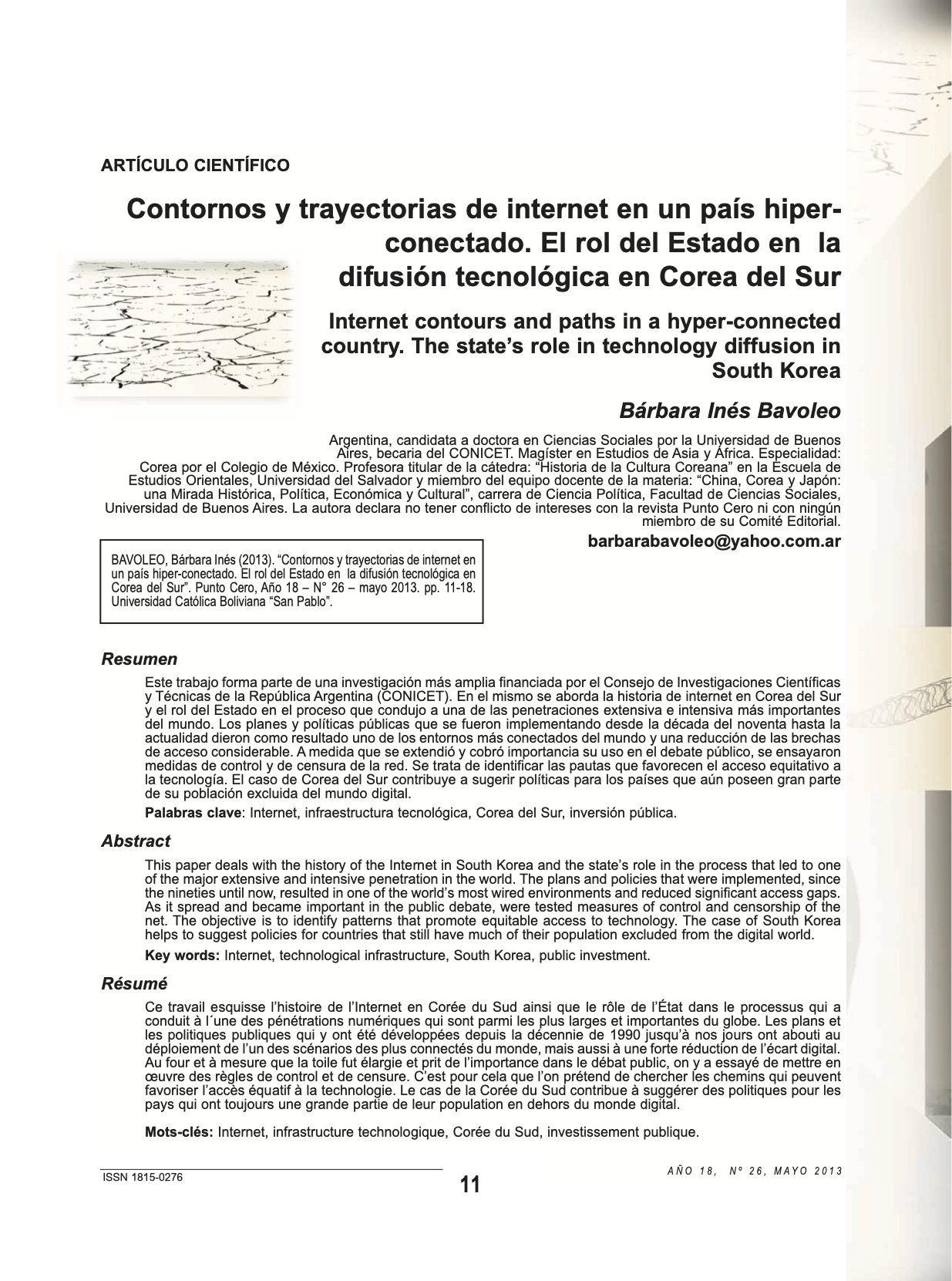Internet contours and paths in a hyper-connected country. The state’s role in technology diffusion in South Korea
DOI:
https://doi.org/10.35319/puntocero.201326140Keywords:
Internet, Technological Infraestructure, South Korea, Public InvestmentAbstract
This paper deals with the history of the Internet in South Korea and the state’s role in the process that led to one of the major extensive and intensive penetration in the world. The plans and policies that were implemented, since the nineties until now, resulted in one of the world’s most wired environments and reduced significant access gaps. As it spread and became important in the public debate, were tested measures of control and censorship of the net. The objective is to identify patterns that promote equitable access to technology. The case of South Korea helps to suggest policies for countries that still have much of their population excluded from the digital world.
References
CHON, PARK, KANg, & LEE, y. (2005). A Brief History of the Internet in Korea. Seoul. KAIST.
DIgITAL DEVELOPMENT SOCIETy OF KOREA (2011). Report. Seoul Digital Society Development of Korea.
HUR, S. (2011). “Evolution of Broadband Policy in Korea”, en: KANZ Broadband Summit 2011 (pp. 1-25). Tasmania. KANZ.
IT&IF (2008). Appendix F: South Korea. Washington. The Information Technology & Innovation Foundation.
ITU (2003). Broadband Korea: internet case study. geneva. ITU.
NCA (2004) y (2011). White Paper Internet Korea. Seoul. National Computerization Agency, Ministry of Information and Communication.
OH, M., & LARSON, J. (2011). Digital Development in Korea. Building an information society. London. Rutledge.
SUH, B. (2004). “Application of information and communication technology in governments: e-government”, en: Public Service Award Nomination . Seoul. UNPAN.
UN (2012). E-government Survey 2012: e- government for the people. geneva. United Nations.
yOO, J., LEE, H & CHU, H. (1999). National Information Infrastructure in Korea. geneva. ITU.

Downloads
Published
How to Cite
Issue
Section
License
Copyright (c) 2013 Revista Punto Cero

This work is licensed under a Creative Commons Attribution-NonCommercial 4.0 International License.








